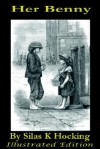Currently reading
The Lonely Sea: Collected Short Stories
Her Benny
Vedere din Parfumerie
Mysticism and Logic (Western Philosophy)
The Analects of Confucious
Pragmatism: A New Name for Some Old Ways of Thinking
Does Anything Eat Wasps?: And 101 Other Unsettling, Witty Answers to Questions You Never Thought You Wanted to Ask
Mutual Aid
City of Djinns: A Year in Delhi
The Brothers Karamazov
The Captive Mind
 The majority of this book was intellectually thrilling, with a balance and subtlety which is rare, for example, on the internet today. On the other hand, I've read a few autobiographical works by Milosz, and it seems as if the subtlety is disguising pro-communist leanings and communist intellectual training. Milosz was an ambassador for communist Poland for a decade or so. He also says, possibly in this book, that he cannot identify with people who have not been raised in a communist intellectual environment.
The majority of this book was intellectually thrilling, with a balance and subtlety which is rare, for example, on the internet today. On the other hand, I've read a few autobiographical works by Milosz, and it seems as if the subtlety is disguising pro-communist leanings and communist intellectual training. Milosz was an ambassador for communist Poland for a decade or so. He also says, possibly in this book, that he cannot identify with people who have not been raised in a communist intellectual environment. Quite a few prominent, self-described intellectuals and anti-communists from the U.S. appear to have praised the book and its author for exposing the dangers of communism. The book does contain cautionary examples from former eastern Europe. But too much of the book seems like an intellectual exercise without real forward motion.
Perhaps respect and polite society were still elements of U.S. society when this book was published, which is why someone like William F. Buckley, with his puppet-fixed head tugging loosely on the flap of a mechanical jaw -- as if his string of thought was broken -- could have ever been considered an intellectual. Buckley is one of those who praised The Captive Mind for its anti-communist warnings.
I'm not sure I care whether Milosz was communist or not, but if anti-communism was strong enough to sustain a war in Vietnam, it's strange that this book was considered one of the stronger anti-communist works.
Here's an example of William F. Buckley debating Noam Chomsky, on Buckley's talk show I think. Amazing how civil the discussion is, especially since Chomsky had been a socialist at one time.
http://www.youtube.com/watch?v=gbTxLmbCoo4













